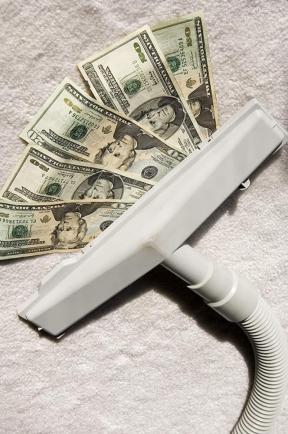
When it comes to your family's financial security, there are many things that can derail your plans. Sometimes bad things can happen that change things in an instant. Sometimes a bad investment can wipe out a couple's life savings. But these aren't the most common causes leading to financial insecurity. For the most part, it's the subtle monthly fixed expenditures that put families in a position where parents cannot sufficiently provide for their children as they would like, or that the parents cannot retire and be able to spend more time with loved ones.
When I worked in the financial services industry and helped individuals and families plan for their futures, these are the main money suckers I came across.
1. Mortgages you can't afford
Mortgage lenders usually have a 36/28 ratio when determining the amount you qualify for - meaning total housing expenses cannot exceed 28 percent of an applicant's gross income, and no more than 36 percent for total debt payments. However, many people use this as a rule of thumb rather than a maximum, leading many homeowners to be so cash strapped that they can't afford to set any substantial amount aside for the future.
Home ownership isn't a negative thing per se, but it's important that couples remember they are locked into those payments for several years. They shouldn't allow their emotions to prevent them from reaching other, more important goals.
2. Cable Television
Cable companies will bend over backwards to attract new customers. They'll offer crazy discounts that are almost too good to be true, and people snatch them up because it's such a great deal. But what they don't realize is that the company offers that because they know the long-term monthly revenue they'll receive per subscriber - often over $100 per month - will make the original discount almost negligible. Eventually, many subscribers become hooked and see cable television as just another necessity. But cable television is not only a money sucker, but also a time sucker. Many families fail to create deep relationships because "family time"� is too often spent in front of a television.
Getting rid of it will not only put more money in your pocket (or keep it from leaving), but will also give you a better opportunity to spend quality time with your family.
3. Gym memberships
Having a membership at a gym can be very helpful to some people. There are many classes that offer a supportive community and motivation, and there is usually a wide variety of machines to work on different things. But the problem is that the majority of gym membership holders don't actually use them after the initial month or two.
I fell in this trap a few years ago and was stuck in a contract of which I couldn't get out. I canceled the contract as soon as I could. Since then, I have been able to find other ways to exercise without the monthly fee.
4. Storage units
A lot of times, people use storage containers or garages as a temporary solution during a transition, but it seems that more and more people are using them for the long term, and storing things for which they no longer have room. The general feeling is that they don't want to sell the stuff for a fraction of the price they paid for it, so they keep it for possible future use. But unless there is an actual plan to do so, the stuff never leaves the storage unit. Rather than selling it and recouping some of the original cost, they incur more costs to keep it. It would be better to get rid of extra stuff that you don't need and just purchase it again down the road in the unlikely scenario that you will use it.
5. Cars you can't afford
This one goes along with houses you can't afford, but, unfortunately, it's more prevalent. While I was doing financial planning, I met several people with cars worth 50 to more than 100 percent of their income. Most of the time, those people were struggling to make ends meet. It's understandable that people want a reliable vehicle, especially with young children. But with a little research, it's possible to find a car at a very low price with few or no mechanical defects. Therefore, it's important to take your other financial goals into consideration when deciding how much you want to spend on a car.
Sometimes it is hard to recognize, but you have more control over your financial security than you think. The decisions you make every day contribute to the greater goals and can ultimately decide which direction your life takes. There are times when something outside of our control can cripple you financially, but that only proves how important it is to consider things as a whole when making the small decisions.

